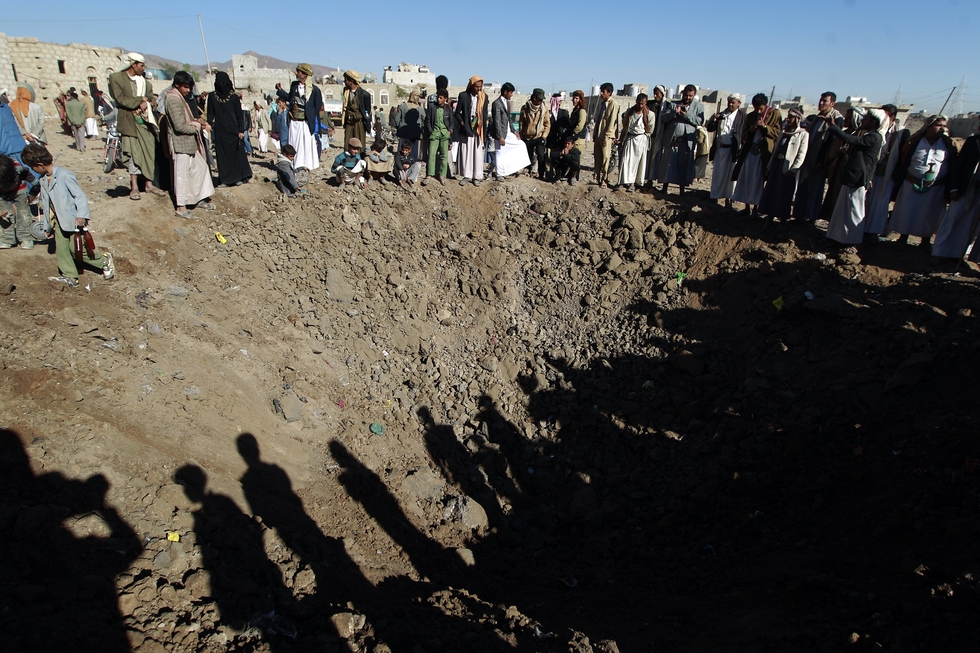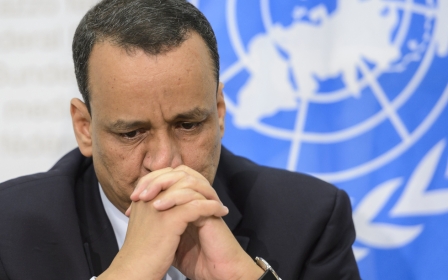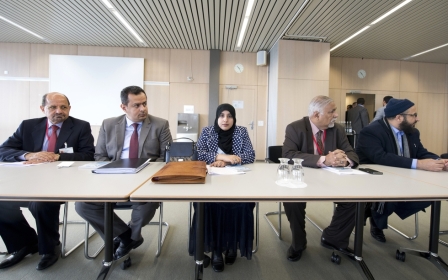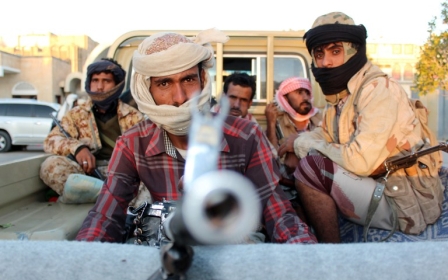3 killed in missile strike on MSF clinic in Yemen: spokesperson

A missile hit a health centre operated by Doctors Without Borders (MSF) in northern Yemen on Sunday, killing three people and wounding 10 others, the aid agency's spokeswoman said.
The missile struck the medical facility in the Razeh district of Saada province, according to communications officer Malak Shaher.
She said MSF could not specify whether the centre was hit in an air strike by the Saudi-led coalition, or by a rocket fired from the ground.
The attack comes shortly after a denial from the Kingdom of a report by Human Rights Watch alleging the use of prohibited cluster bombs in the conflict.
The organisation on Thursday produced a report including photos purporting to show a picture of BLU-63 submunitions from a CBU-58 cluster bomb.
“The coalition’s repeated use of cluster bombs in the middle of a crowded city suggests an intent to harm civilians, which is a war crime,” said Steve Goose, arms director at Human Rights Watch. “These outrageous attacks show that the coalition seems less concerned than ever about sparing civilians from war’s horrors.”
On Sunday, Brigadier General Ahmed al-Assiri denied that the coalition was using the munition, though he admitted they had used it in past.
"Now they don't have any more vehicles so we don't use it," he said.
He described the HRW report as "very weak", and said that "they didn't show any evidence."
Cluster bombs are prohibited under a 2008 treaty that was adopted by 116 countries, though notably not by Saudi Arabia or its coalition partners.
On Friday, US secretary-general said the use of cluster bombs "may amount to a war crime due to their indiscriminate nature."
Arbitrary detention
Human Rights Watch have also slammed Yemen's Houthi rebels for their use of arbitrary detention against dissidents in areas they control in the country.
In particular, they have been accused of targeting members of the Muslim Brotherhood-linked Islah party, who have been staunch critics of the Houthis, who took control of the capital Sanaa in September.
“Houthi arrests and forced disappearances of alleged Islah supporters have generated palpable fear in the capital,” said Joe Stork, deputy Middle East director of HRW.
“Politicians, activists, lawyers, and journalists tell us they’ve never been more frightened of ending up ‘disappeared.’”
According to the UN Office of the High Commissioner for Human Rights, over 2,800 civilians in Yemen have been killed since March.
The country has descended into a humanitarian crisis since the Saudi-led coalition began its bombing campaign in March, with over 80% of the population now believed to be in desperate need of aid.
New MEE newsletter: Jerusalem Dispatch
Sign up to get the latest insights and analysis on Israel-Palestine, alongside Turkey Unpacked and other MEE newsletters
Middle East Eye delivers independent and unrivalled coverage and analysis of the Middle East, North Africa and beyond. To learn more about republishing this content and the associated fees, please fill out this form. More about MEE can be found here.




